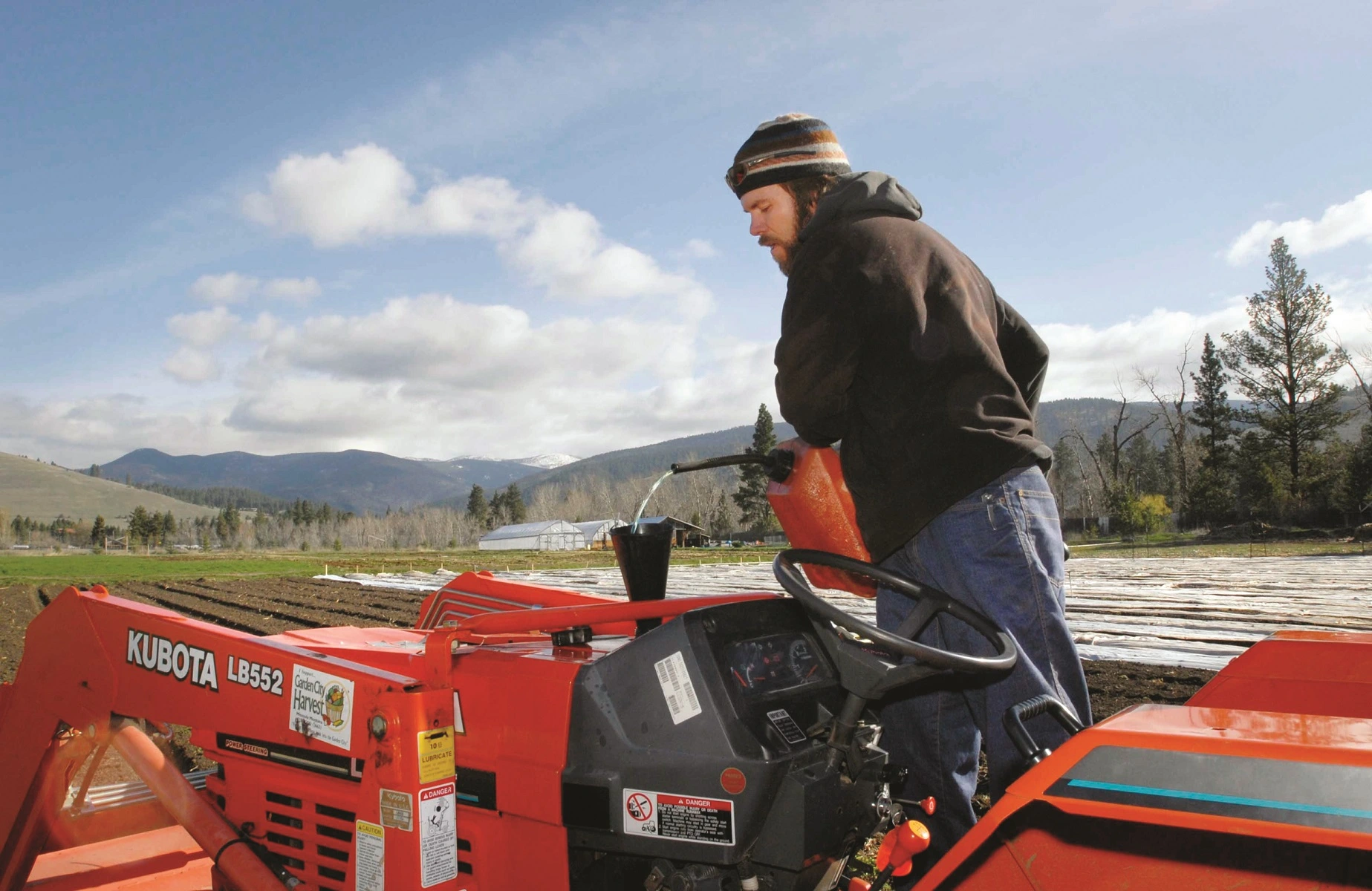- cross-posted to:
- farming
- cross-posted to:
- farming
How to Make Biofuel at Home: From Crop to Car
Using biodiesel requires modifications to the vegetable oil itself; using straight vegetable oil requires modifications to the diesel engine.
The engine starts on diesel fuel, but switches to run on vegetable oil after heat produced by the engine warms the vegetable oil to about 160 degrees Fahrenheit.
Before shutting off the vehicle, diesel fuel is cycled through the fuel lines to purge the system of vegetable oil.
A single-tank system preheats the vegetable oil using electric heat and uses modified injectors and glow plugs that are optimally suited to ignite and combust vegetable oil.
Thanks in part to a grant from the National Center for Appropriate Technology, an organization that promotes technologies that conserve energy and resources, we have retrofitted a Kubota tractor with an Elsbett single-tank fuel system to run on straight vegetable oil produced in eastern Montana.
If we confirm that a single-tank system is a viable option for running a tractor on straight vegetable oil, we plan to grow an oilseed crop and produce our own fuel.
The PEAS farm also houses a biodiesel processor to convert used cooking oil to biodiesel for the Garden City Harvest tractor.
Basically, biodiesel is produced by a chemical reaction involving vegetable oil, methanol, and potassium hydroxide or another catalyst.
We took 20 gallons of used fryer oil, strained out the food particles, and pumped the oil through a series of braided hoses and copper valves into a recycled water heater.
As the oil cycled through the processor, we took a sample and tested it to determine the amount of potassium hydroxide we would need to add to the used oil.
From 20 gallons of used fryer oil, we produced 16 gallons of biodiesel.
Utilizing salvaged materials, the biodiesel processor at the PEAS farm was put together for about $150. Local restaurants give away used vegetable oil, and methanol can be purchased for $4 per gallon.
The legal issues concerning use of veggie oil as a fuel and home production of biodiesel are complicated and vary from state to state.
Laws concerning straight vegetable oil are changing, but it’s still technically not approved for use as fuel by the EPA. And your state may require you to register to collect waste vegetable oil.
The use of straight vegetable oil has demonstrated promise as a fuel alternative for our Kubota tractor.
tested it to determine the amount of potassium hydroxide
Oh shit I read ‘tasted it’ and was like ‘these people are so determined to science they even taste nasty old oil!’
Great project, thanks for sharing!
Yum crunchy metal filings!
i dont know what you are implying with this, but the whole idea still involves methanol and diesel that are hydrocarbons, and thus still require tankers and refineries to carry oil around and refine it. is it a worthwhile idea ? idk. is it better than lithium mining ? maybe (at least oil is way abundant than lithium). by how much would this reduce carbon emissions ? 90% ? still up for debate.




